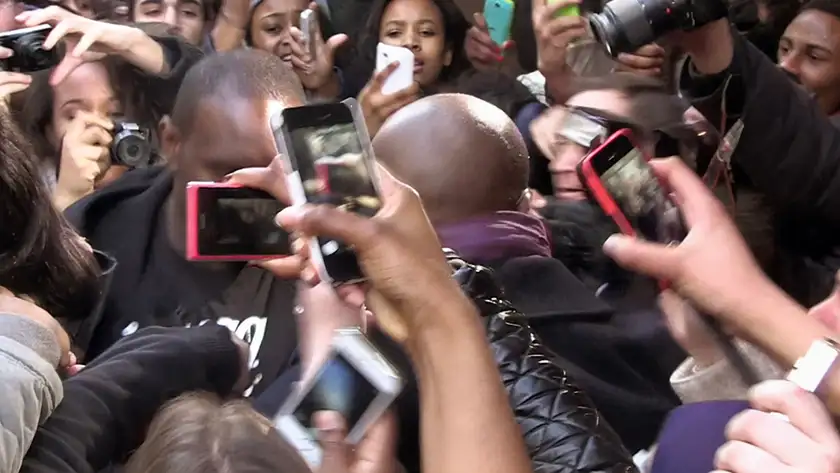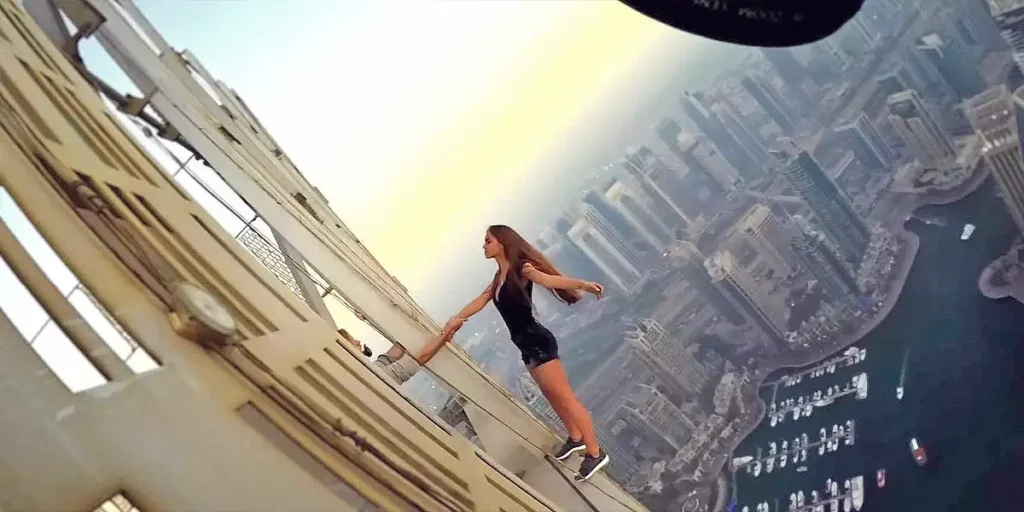Fantastic Machine is a transfixing essay telling the history of the camera and our society’s growing obsession with the moving image.
Directors: Axel Danielson & Maximilien Van Aertryck
Genre: Documentary
Run Time: 88′
UK & Irish Release: April 19, 2024
US Release: TBA
Where to watch: in cinemas
Fantastic Machine is the history of the camera, chronicling the rise of media culture and our society’s growing obsession with the moving image. Using an essay collage format and a wide range of archive footage, the documentary begins in 1825 as French inventor Joseph Niépce photographs the view from his country house. We then move to the contributions of Eadweard Muybridge (who needed to settle a bet about a galloping horse) and the Lumière Brothers.
And from there, we chart the development of image technology from home videos to webcams, from televisions to 24/7 livestreams. As the film goes on to explain, the camera has become an integral part of our lives – but it has also been easily misused.
Writer-directors Axel Danielson and Maximilien Van Aertryck – previously experimental with shorts like Ten Meter Tower and Because the World Never Stops – seek here to demonstrate how images have shaped our view of the world and our behaviours. The film’s full title (And The King Said, What A Fantastic Machine) comes from King Edward VII’s reaction to Georges Méliès’ reconstruction of his coronation. Méliès himself was known for manipulating the image to entertain, using the camera for his illusions and creating them through special effects and fancy editing. Early on in the documentary, Van Aertryck’s narration (which effortlessly covers 200 years of history) quotes author Elizabeth Eastlake, who said “The camera’s purpose is to give evidence of facts. Every photograph becomes an authentic chapter in the history of our world.”
Yet the film makes it clear that the camera has always possessed an ability to create an illusion of facts, to either lie ortell the truth (or both) depending on who controls it. Even now – or especially now, considering the film takes us right up to January 6th and the chants of fake news from the protestors before they storm the Capitol Building.

With Fantastic Machine clocking in at just 88 minutes, Danielson and Van Aertryck’s heterogeneous footage is delivered with break-neck pacing. The pair also co-edited alongside Mikel Cee Karlsson (Triangle of Sadness, which was made by this film’s exec producer Ruben Östlund), and the structure is like entering an Internet rabbit hole. However, it retains the core idea of showing how the camera has depicted and exhibited our weird, wonderful, carnage-filled world (as summarised perfectly in the opening montage, set to ‘In the Hall of the Mountain King’). It also shows that photography has been there for – and likely played its part in causing – a rapid change in who we have become.
There is a definite link between the analysis made there and the sociological, in-depth, media-centred essay films of Adam Curtis. But there are psychological aspects as well. From the beginning, where a crowd are amazed and befuddled by a camera obscura illusion, there is a focus on our perceptions and reactions to imagery. There are adolescents uncomfortable with having their picture taken, which then cuts to a teenager unhappy with the images taken of her.
That is one example of how Danielson and Van Aertryck know to create perfect contrasts and juxtapositions through editing. Another sees Lena Riefenstahl talking through the techniques of her Nazi propaganda piece Triumph of the Will, which is contrasted immediately by footage from concentration camps during the final days of World War II (with producer Sidney Bernstein recounting how he was instructed to capture everything, to prove these atrocities actually happened). The topic and tone switches are sudden (particularly in showing death and stark horrors), but Danielson and Van Aertryck manage to find a delicate balance through said editing.
The ‘breadth over depth’ approach means things can feel a little scattered and insufficiently explained, with the film overstretching itself by the end. But Fantastic Machine still manages to be a transfixing watch that is at times hilarious, surreal, purposefully bizarre and scare-inducing (with footage of daredevils dangling off buildings and jumping off mountains). And through their collage, Danielson and Van Aertryck reveal something both fascinating and troubling about our long-standing fixation on the moving image and the 45 billion cameras that are now owned worldwide. What we watch, what we consume and what parts of ourselves (real or fake) are now seen by everyone.
Fantastic Machine will open in cinemas across the UK & Ireland on Friday, 19 April, 2024.
Loud and Clear Reviews has an affiliate partnership with Apple, so we receive a share of the revenue from your purchase or streaming of the films when you click on the button on this page. This won’t affect how much you pay for them and helps us keep the site free for everyone.

